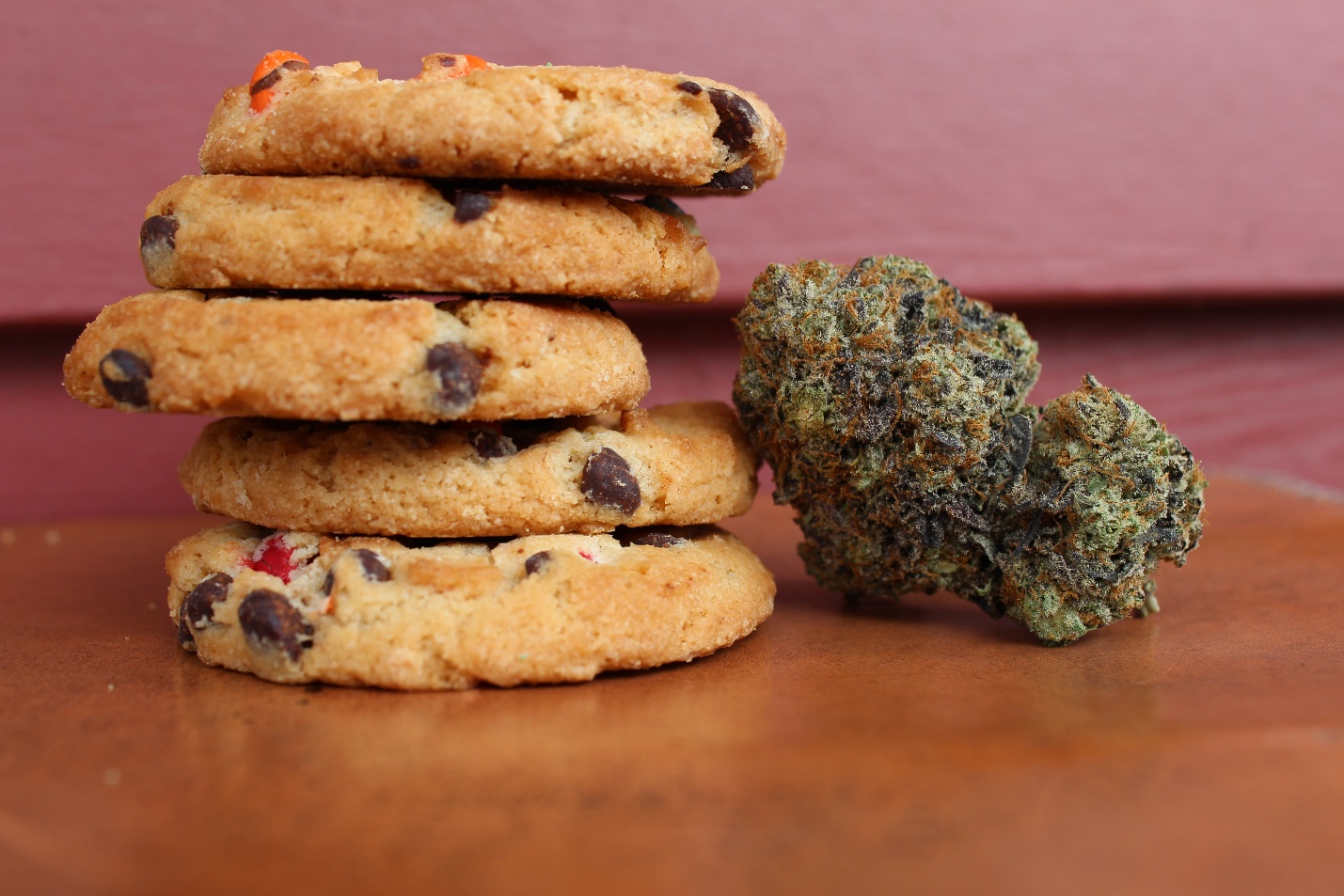Recommendations indicate the component of the cannabis plant not deemed safe for pets is marijuana. It is not a good idea to have the flowers, THC oil, or edibles within reach of roaming animals.
That isn’t to imply that if carefully supervised by a professional vet and properly dosed, there aren’t other parts of the cannabis plant that could potentially be of great benefit to dogs and cats. But there is a substantial difference between heavy levels of THC, the high-inducing element of the cannabis plant, and mere scant amounts.
Marijuana Effects For Cats And Dogs
Therein lies the difference between marijuana and hemp-derived products like CBD oil. Tetrahydrocannabinol or THC has the potential in the worst-case scenarios, based on the level ingested, for being lethal to companion pets.
Claims suggest a dose of 3g of pure THC is the minimum required for fatality. Smaller doses will lead to serious adverse effects. Some symptoms of toxicity have the potential to lead to death, i.e. if an animal were to choke on their vomit, or if they were to sneak an edible with other toxic ingredients like chocolate.
Most episodes of pet toxicity occur when animals are exposed to pet parents’ cannabis products. When you have a dog or cat in your home, it’s essential to follow rules of etiquette the same as you would for a child.
- Keep edibles stored in areas where there is no access to anyone except you.
- Make sure pets are not exposed to flowers or buds.
- When smoking, keep it away from your dog or cat’s general area, don’t sit next to them, and certainly don’t blow it in their face.
- It’s absolutely not funny when a pet exhibits signs of intoxication. Monitor them and place a call to the vet if the condition progresses. For guidance on why you should avoid pet intoxication go to https://hightimes.com/health/shouldnt-get-pet-high/.
THC is the psychoactive component of marijuana that makes people and animals develop the ‘high.’ Marijuana is prevalent in this compound where hemp is more plentiful in cannabidiol or CBD. CBD is non-psychoactive, instead of being more therapeutic with its properties. When the compound is derived from hemp, it has the potential to present health-related benefits for pets.
Hemp Effects For Cats And Dogs
Cannabidiol or CBD oil derived from hemp is the product of great scrutiny and focus of medical research. Few clinical studies have involved the companion animal population to this point. Anecdotal studies, however, suggest the potential for similar results as humans based on comparable endocannabinoid systems. In this way the compound’s properties purportedly can:
- Decrease anxiety
- Assist in the treatment of epilepsy/seizures
- Chronic pain relief
- Appetite management
- Immune strengthening
- Anti-inflammatory response
A majority of CBD products contain merely trace amounts of THC, 0.3% or less is the legal limit. Companies such as Pethemp Company, who are the most knowledgeable resources to help you find pure CBD oil, or you can inquire with your veterinarian.
In order to ensure the optimum in care, it’s imperative to always work hand-in-hand with the vet, collaborating on what is for the dog or cat’s ultimate greater good. If the vet agrees to alter the treatment, he can do so with no ill effects, gradually.
Dosing Of Hemp-Derived Products
As discussed, too great of a dose of THC has harmful effects. The potential is there, though rare, with CBD products in various different scenarios to obtain too great an amount of THC. Most of the hemp-derived substances offer only 0.3% or less, but in the following circumstances, pets can ingest more without the pet parent realizing it’s happened.
- Excessive doses of CBD, i.e. if the animal ingests a great amount of treats left unattended creating THC levels that add up.
- Mislabeled products from suppliers with lower standards.
- Dosing too high from the pet parent due to lack of knowledge
Read this link about giving the right dose of CBD for your pets.
Research claims indicate CBD has a great possibility as an option for symptom relief for specific conditions for dogs and cats if administered correctly. In a majority of cases, this can only happen with the help of the regular vet, along with manufacturer guidelines provided on most higher quality products. 
Final Word
The takeaway with this is to research, do your homework, speak to knowledgeable people – suppliers, veterinarians before you buy any products. In taking the time to do these things, you will ensure to obtain only the healthiest options for your companion pets.
You should also educate on the substances in which you indulge as to how to prevent toxicity for your dog or cat. Though fatality is rare, it does happen. And even if the animals may not die, what they endure is tough enough. Seeing a pet suffer is heartbreaking. An intoxicated animal is no joke. It should be somber to watch as a loving pet parent and it’s challenging for the pet to handle. Prevention is key.

